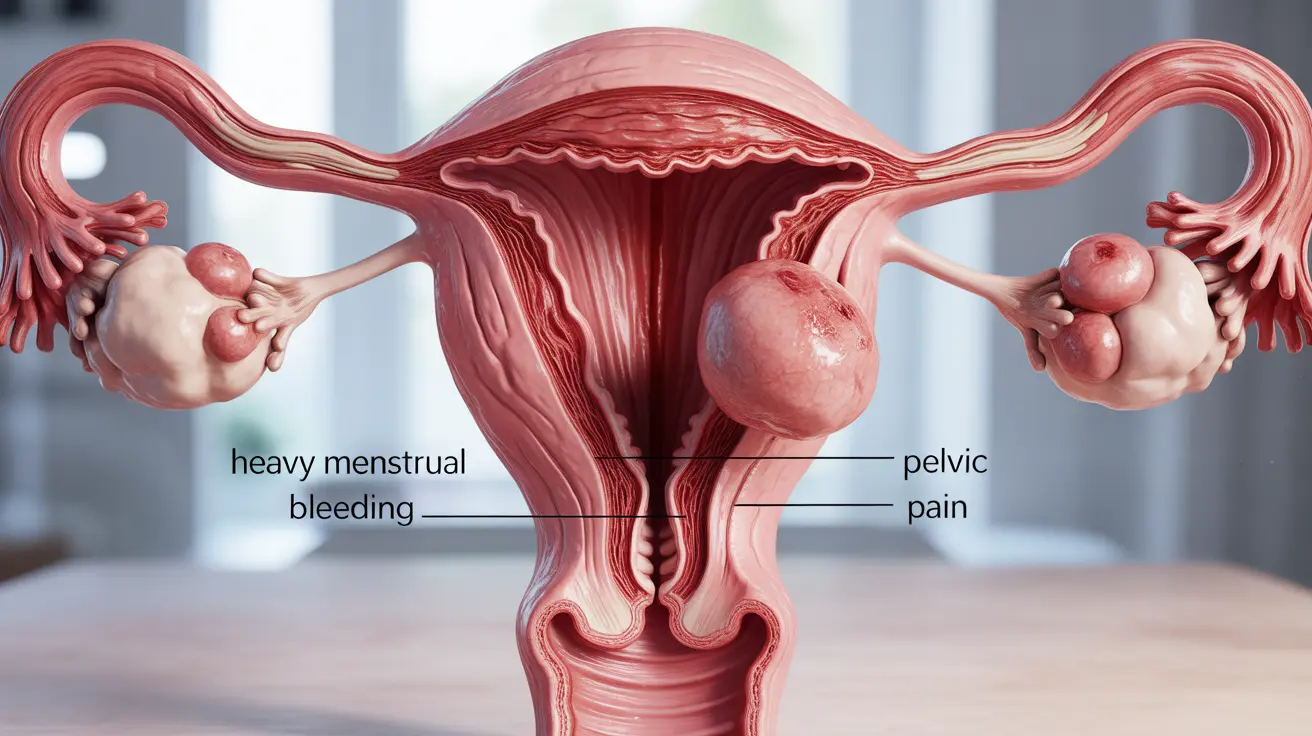If you're experiencing unusual symptoms related to fibroids, including noticing tissue in the toilet, it's important to understand what's normal and when to seek medical attention. Uterine fibroids affect many women, and understanding their symptoms and effects can help you make informed decisions about your health.
This comprehensive guide will explore what to expect when dealing with fibroids, including common symptoms, treatment outcomes, and important warning signs that warrant medical attention.
Understanding Uterine Fibroids and Their Effects
Uterine fibroids are non-cancerous growths that develop in or around the uterus. These benign tumors can vary in size and number, potentially affecting menstrual flow and causing various symptoms. While some women may experience minimal effects, others might notice significant changes in their menstrual cycle and discharge patterns.
Common Symptoms and Signs
When dealing with fibroids, you might experience several distinctive symptoms:
- Heavy menstrual bleeding
- Prolonged periods
- Pelvic pressure or pain
- Frequent urination
- Lower back pain
- Enlarged abdomen
Changes in Menstrual Flow and Discharge
Fibroids can significantly impact your menstrual cycle and discharge patterns. You might notice:
- Large blood clots during periods
- Grayish or pink discharge between periods
- Increased vaginal discharge
- Changes in discharge consistency
Treatment-Related Tissue Passage
After certain fibroid treatments, particularly uterine fibroid embolization (UFE), it's possible to pass fibroid tissue. This occurrence is actually a sign that the treatment is working, as the fibroids are breaking down and being expelled from the body.
What to Expect During Tissue Passage
When passing fibroid tissue, you might observe:
- Small pieces of gray or white tissue
- Temporary increase in discharge
- Possible cramping
- Variable amounts of bleeding
When to Contact Your Healthcare Provider
Certain symptoms require immediate medical attention:
- Severe pelvic pain
- Heavy bleeding that soaks through pads hourly
- Fever or chills
- Foul-smelling discharge
- Severe weakness or dizziness
- Difficulty breathing
Frequently Asked Questions
What are the symptoms of fibroids in the uterus, and how do they affect menstrual discharge? Common symptoms include heavy menstrual bleeding, prolonged periods, and changes in discharge consistency. Fibroids can cause heavier than normal menstrual flow, clotting, and increased discharge between periods.
How common is it to pass fibroid tissue after uterine fibroid embolization or other treatments? Passing fibroid tissue after UFE is relatively common and occurs in many patients. This process typically begins a few weeks after treatment and can continue for several months as the fibroids break down.
What are the differences between normal menstrual bleeding and discharge caused by uterine fibroids? Fibroid-related bleeding tends to be heavier and longer than normal periods. The discharge may contain more clots, and you might experience irregular spotting between periods. Normal menstrual bleeding follows a more predictable pattern and typically doesn't include large clots.
Can fibroids cause abnormal odors in vaginal discharge, and what might this indicate? While fibroids themselves typically don't cause odors, any unusual or foul smell in discharge should be evaluated by a healthcare provider, as it could indicate an infection or other complications.
What are the signs that I should seek medical attention if I suspect fibroids are causing my discharge or other symptoms? Seek immediate medical attention if you experience severe pelvic pain, extremely heavy bleeding, fever, foul-smelling discharge, severe weakness, or difficulty breathing. These symptoms could indicate complications that require urgent care.




